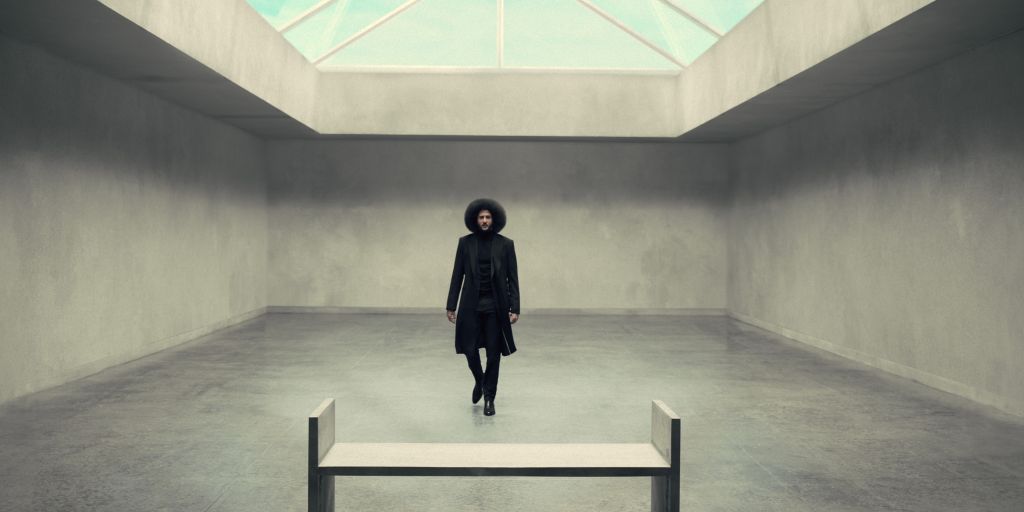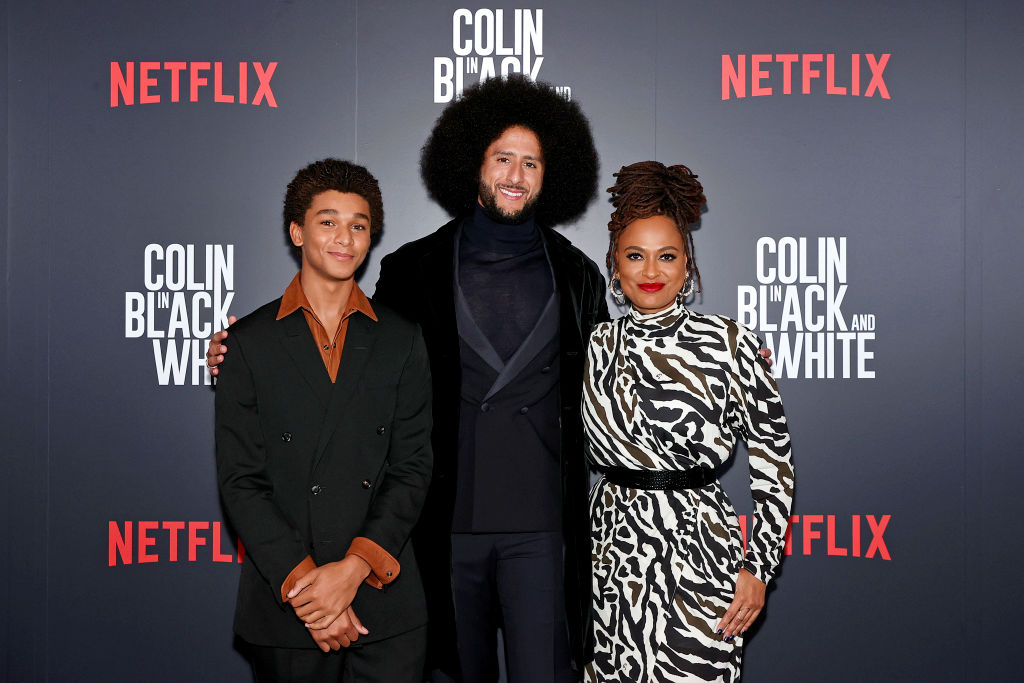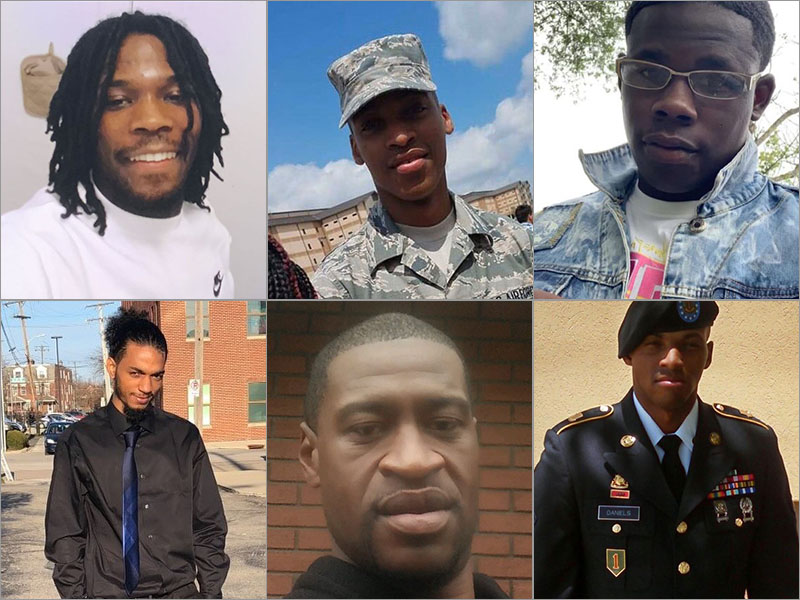'Colin In Black & White' Review -The Evolution Of Colin Kaepernick
‘Colin In Black & White’ Review: DuVernay Adds Another Dimension To The Exiled Quarterback

Source: Colin in Black & White / Courtesy of Netflix
For years after the 2016 protest which effectively got him blackballed from the NFL, Colin Kaepernick didn’t do public interviews. His message, long detailed and long explained in 2016, had morphed into a stance of letting the world prove him right. By protesting police brutality and the fallacies of the criminal justice system, Kaepernick chose a unique approach to lay bare America’s modern sins at the feet of a base too prideful to acknowledge him and even too afraid to listen. He’s viewed plenty of talent-deficient quarterbacks get jobs after his exile and seen fans voice their displeasure every time. A simple Twitter search of Kaepernick’s last name gives you the best and worst of the app, for better or worst.
In the five years since Kapernick last took a snap as an NFL quarterback, he’s emerged as a celebrity. A silent provocateur through his Know Your Rights camp, a dashing cover star with an unmistakable Afro and pointed thoughts about race, justice, and the structures which uphold the worst of America’s inalienable truths. With his limited series Colin In Black & White, he takes on a new role – the narrator of a story that is a mix between coming of age and historical retellings and explanations of the triggers of Black America.
The show acts as a proxy for Kaepernick’s upbringing as a mixed-race teen uprooted from Wisconsin at age four to live in Turlock, California, a conservative enclave in the middle of the state. The show accomplishes through the lens of directors such as Ava DuVernay and Robert Townsend in select episodes to capture Kapenerick’s angst as a teen and match it with the tone of today regarding race, culture, and identity. There are sketches and framing for documentary-style glimpses into how oppressive structures affect individuals from youth to adulthood. In one scene, the famous Doll Test, used by psychologists on Black children to determine Black from white, is used as a device to prove how racism is taught regarding intelligence and beauty.
Where most coming-of-age tales reach their ultimate high – Kaepernick playing in the NFL or perhaps his initial protest – Colin In Black & White hits a hard stop on his way out of high school.
“The reason we focused on high school years is because they are pivotal in figuring out who you are, where you fit within society, and ultimately what your trajectory is going to be,” Kaepernick told the Los Angeles Times in a rare interview. “It allowed us to dive into the complex racial dynamics of my family, my relationships and society.”

Source: Arturo Holmes / Getty
Kaepernick’s decision-making in the show came upon his final say, from edits to cuts, dialogue, and more. As a narrator for his younger self, portrayed by Jaden Michael in a star-making turn, the quarterback turned activist lays out the show at its basis is about acceptance in a world where his every decision, from hair choice to desire to evolve as a man, comes with varying levels of scrutiny. Even though his voice as a narrator feels jarring because of how infrequent we hear from him, Kaepernick stands out like a museum subject, allowing his real-life twist into a colorful exposition of The History of the World according to him.
Together, Kaepernick and DuVernay along with a well-rounded cast including Nick Offerman and Mary-Louise Parker, hammer home the point of how simple Hollywood storytelling of an outcast finding his way can work for anyone – including a Black kid whose first major teen decision came with getting braids due to a love of Allen Iverson.
There are moments where Colin In Black & White finds the quiet rage of its subject and bluntly drives home a topic similar to a Spike Lee project. Others opt for its charm and sincerity, but above all, it finds a groove understanding regardless of how anyone chooses to talk about race, class and structure in America – none of it comes off easy, even if an impeccably dressed Kaepernick himself lets us in.
Colin In Black & White adds another dimension to the now exiled quarterback. As his voice finds new mediums, he’s found teammates to execute further his vision: education for Black and brown communities about racism, the structures which keep it alive, and how to tear those systems down.
Colin In Black & White, a six-episode limited series premieres on Netflix on October 29.
SEE ALSO:
Colin Kaepernick Inks Publishing Deal With Scholastic
Does Gruden’s Racist Emails Prove Kaepernick Was Right About NFL?
‘Colin In Black & White’ Review: DuVernay Adds Another Dimension To The Exiled Quarterback was originally published on theboxhouston.com

















